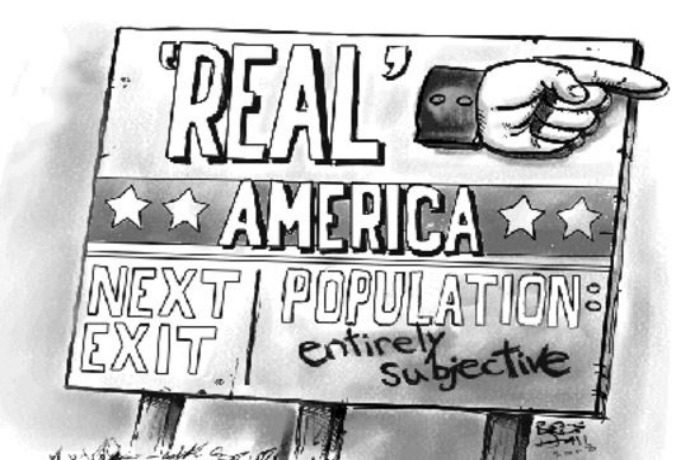I’m from the real America—rural America. Northwest Oklahoma to be exact, not far from where Don Draper ended up in the penultimate episode of Mad Men. On his crazy road trip, some thugs from the American Legion in Alva, Oklahoma, beat him up. That was (in his fictional world) about 6 years before (in real life) I attended high school band and speech contests there.
No bubble here, folks; this is where authentic Americans live. We grew up convinced that government was always bad and that farm subsidies must be increased. On the way to the bowling alley outside of town, I rode by this billboard: “get US out of the UN.” We also grew up with wonderful people who would give you the shirt off their back en route to Wednesday evening prayer meeting.
Subsequently, I lived for about nine years in Bubble America: Berkeley, California, where, in heartland folklore, coastal liberal intellectual elites poked vicious fun at local yokels in the heartland. In reality, these coastal elites revered and paid homage to “authentic culture” from the Mississippi Delta or from Bristol, Virginia. But never mind. Bubble is as Bubble does.
After Tuesday’s election, coastal elites have been busy opining that “we” should be empathetic towards heartland Trump voters. “We” should feel their pain. We should stop shaming Trump supporters. We should stop making fun of their religion.
Now in the Rocky Mountain West, neither heartland exactly nor liberal elite bubbleland, I see something different. I’m on board with dialogue and empathy, always, but this works both ways. Because rural America, where I grew up, is also a bubble. It’s not any more authentic “real America” than North Berkeley. Arguably, in a multi-cultural and multi-religious America, it’s less so. Patrick Thornton makes this point here:
We, as a culture, have to stop infantilizing and deifying rural and white working-class Americans. Their experience is not more of a real American experience than anyone else’s, but when we say that it is, we give people a pass from seeing and understanding more of their country. We must all understand that America is a melting pot and that none of us has a more authentic American experience.
I’m all for soul-searching in the wake of the coalition of evangelicals and angry middle- and working-class heartlanders who gave Trump enough votes to secure an electoral (but not popular) victory. Some, after all, have legitimate grievances about stagnating incomes and declining opportunities. But some clearly express a much darker set of “grievances,” and the uptick of hate crimes and racist harassment committed during his campaign is no accident.
Will the angry voters from Trumpland reach out, empathetically, to the majority of voters who were repelled by their candidate? So far, with Trump tweeting complaints about protests focused on the rhetorical violence embodied by his campaign, I’m seeing little hope that calls for “unity” are much more than capitulation to a strongman’s amoral reach.


